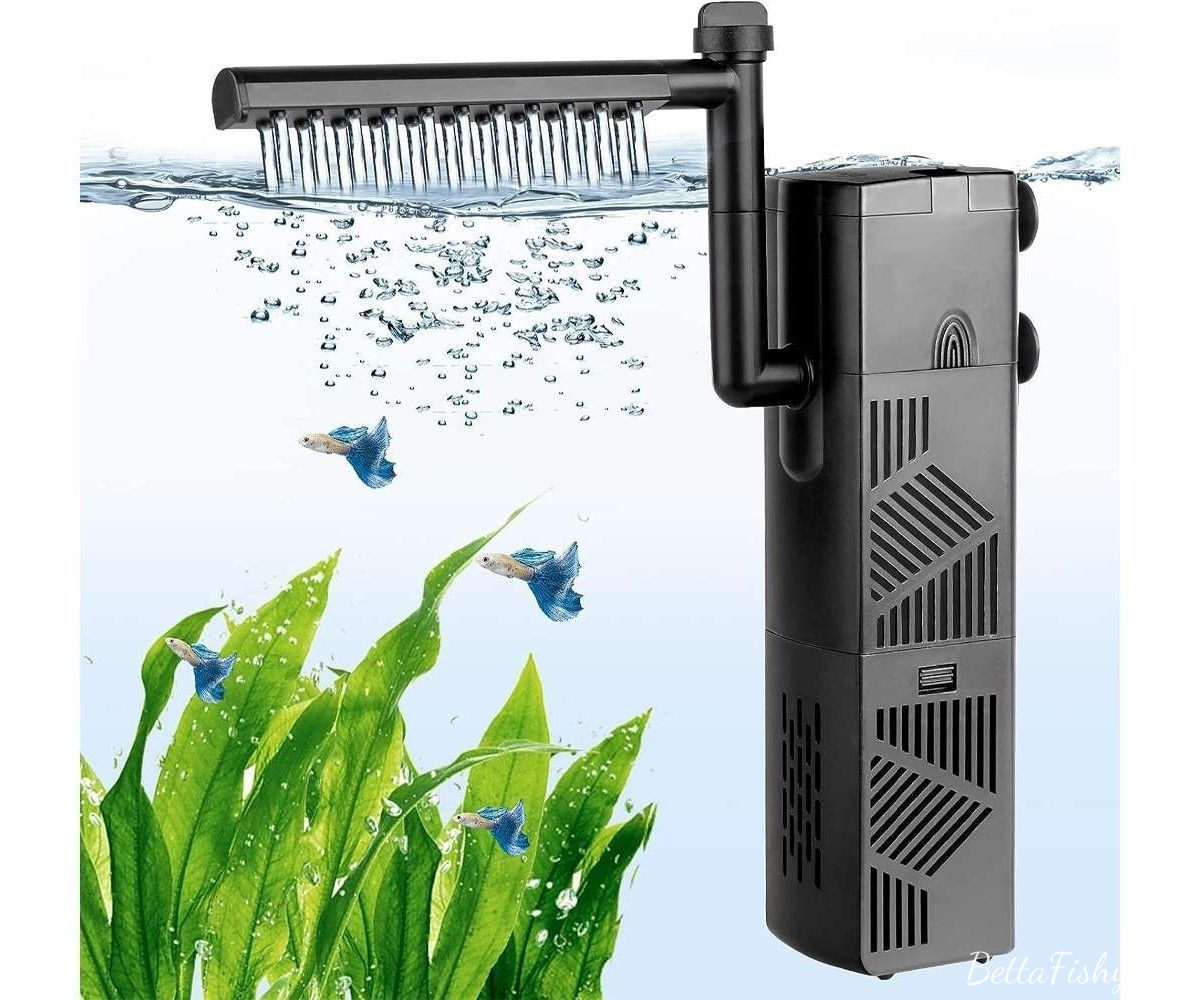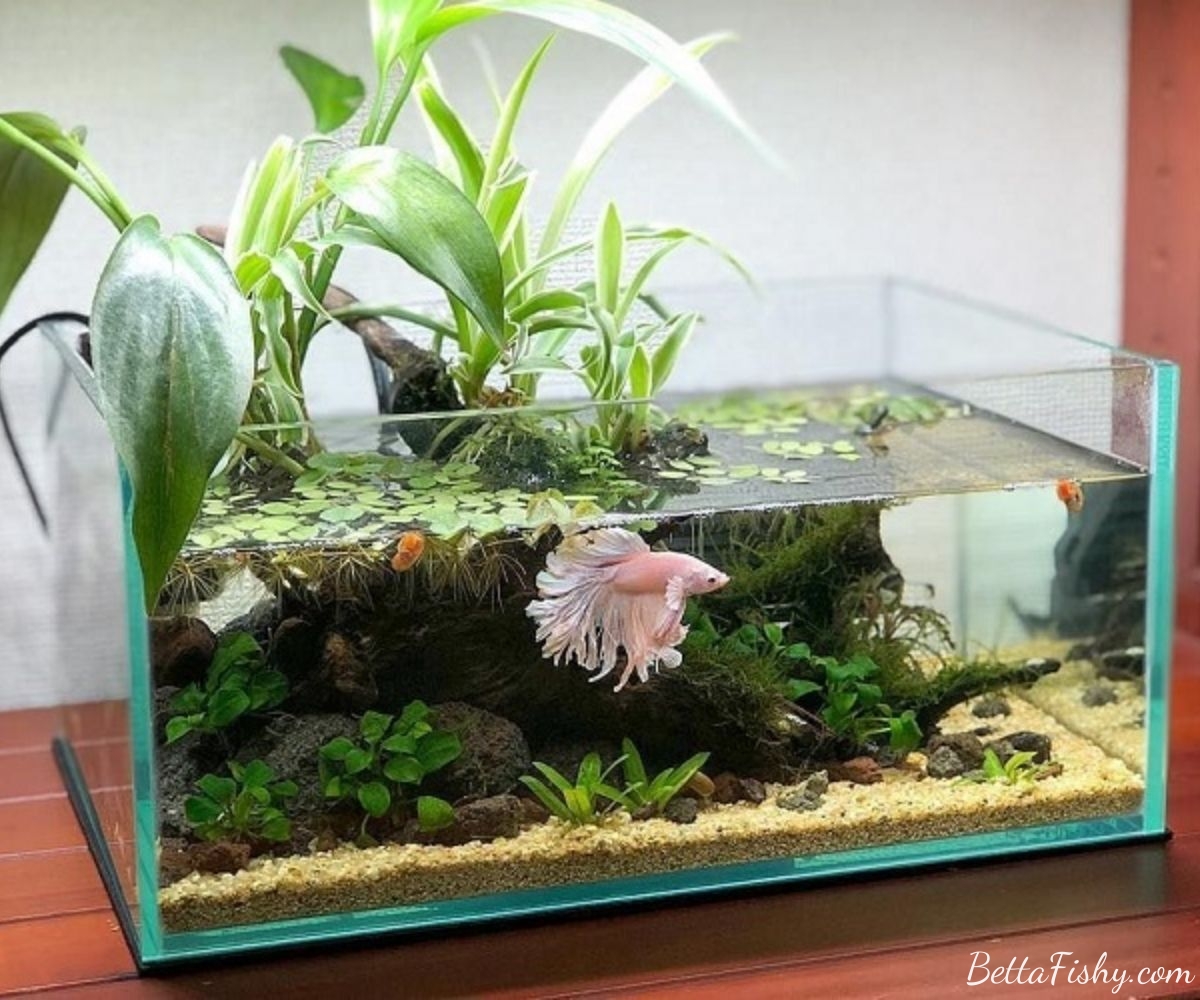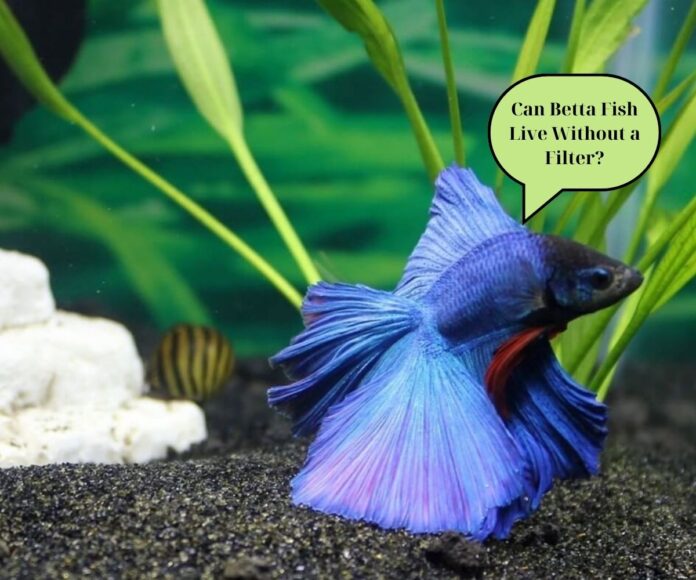The world of fishkeeping is brimming with diverse opinions and practices, with one particularly contentious point being the necessity of filters in betta tanks. While some experts vouch for the essential role of filters in maintaining a healthy environment for these vibrant fish, others advocate for a more natural approach, claiming that bettas can even thrive without filtration. Can Betta Fish Live Without a Filter? Delving into the depths of this debate, we will explore the truth behind this controversial topic, delving into the pros and cons, the alternative solutions available, and the crucial factors to consider when making an informed decision for your betta’s well-being
The Role of Filters in Aquariums and Why They Are Recommended

Before diving into the debate of whether betta fish can live without a filter, it is essential to understand the purpose and benefits of having a filter in an aquarium. Aquarium filters are vital components of any aquatic ecosystem, performing various essential tasks that help maintain a healthy and balanced environment for its inhabitants.
Mechanical Filtration
One of the primary functions of a filter is mechanical filtration, which involves trapping debris, uneaten food particles, and fish waste from the water column. These particles can quickly accumulate and cause cloudy water conditions, leading to potential health risks for your betta fish. By removing these substances, filters help keep the water clean and clear, creating a more visually appealing and healthier environment for your fish.
Biological Filtration
Another critical function of filters is biological filtration, which involves the growth of beneficial bacteria on the filter media. These bacteria play a crucial role in breaking down harmful substances like ammonia and nitrites, which are produced by fish waste and decaying organic matter. These toxic compounds can be lethal to fish in high concentrations, but the beneficial bacteria convert them into less harmful nitrates, which can then be removed through regular water changes.
Chemical Filtration
Some filters also offer chemical filtration, which involves the use of activated carbon or other chemical media to remove impurities and toxins from the water. While this is not a necessary function for betta fish tanks, it can be beneficial in removing any medication residues or excess nutrients that may cause algae growth.
Can Betta Fish Live Without a Filter?
Now that we have established the importance and benefits of having a filter in an aquarium let’s delve into the debate of whether betta fish can survive without one. On one side of the argument, some experts claim that bettas can thrive in a filterless environment, while others argue that filters are essential for their well-being. To understand this debate better, let’s examine the natural habitat of betta fish and its implications on filtration needs.
Learn the Natural Habitat of Betta Fish and Its Implications on Filtration Needs

Betta fish, also known as Siamese fighting fish, originate from the shallow waters of Southeast Asia, specifically Thailand, Cambodia, and Vietnam. In their natural habitat, bettas live in slow-moving or stagnant waters, such as rice paddies, swamps, and streams. These environments do not have traditional filters, yet bettas thrive in them.
However, it is crucial to note that these natural habitats are vastly different from the confined space of an aquarium. In the wild, bettas have access to a more extensive range of resources, such as plants, rocks, and other hiding spots, which help maintain the balance of their ecosystem. In contrast, in an aquarium, the water volume is limited, and there is no natural flow of water, making it more challenging to maintain a healthy environment without a filter.
Pros and Cons of Keeping a Betta Fish Without a Filter
To determine whether betta fish can live without a filter, let’s weigh the pros and cons of keeping a betta in a filterless environment.
Pros:
- More natural environment: As mentioned earlier, bettas originate from slow-moving or stagnant waters, so a filterless tank may provide a more natural environment for them.
- Cost-effective: Filters can be expensive, especially if you have multiple tanks. Keeping a betta without a filter can save you money in the long run.
- Quieter: Some filters can be noisy, which can be bothersome for some people. A filterless tank will be much quieter, creating a more peaceful atmosphere.
Cons:
- Water quality concerns: Without a filter, it is challenging to maintain good water quality in an aquarium. This can lead to various health issues for your betta, such as fin rot, bacterial infections, and even death.
- Frequent water changes: Without a filter, you will need to do more frequent water changes to keep the water clean and healthy for your betta. This can be time-consuming and labor-intensive.
- Limited stocking options: In a filterless tank, you will have to be very careful with the number of fish you add. Overstocking can quickly lead to poor water quality and overcrowding, which can be detrimental to your betta’s health.
Maintaining Healthy Betta Fish Tanks Without Traditional Filters
While traditional filters are the most common and recommended method of maintaining a healthy betta tank, there are alternative solutions available for those who want to try a filterless setup. These methods may not be suitable for all betta fish tanks, but they can work in certain situations.
Live Plants
Adding live plants to your betta tank can help mimic their natural habitat and provide some of the benefits of a filter. Plants absorb nutrients from the water, reducing the levels of ammonia and nitrates. They also produce oxygen, which helps improve water quality and provide a natural source of food for your betta.
Aeration
In a filterless tank, it is crucial to ensure that there is enough oxygen in the water for your betta to thrive. You can achieve this by using an air pump and air stone or adding a small waterfall feature to create surface agitation. This will help increase the oxygen levels in the water and prevent stagnation.
Regular Water Changes
Without a filter, you will need to do more frequent water changes to keep the water clean and healthy for your betta. It is recommended to change 25-30% of the water every week in a filterless tank. This will help remove any build-up of toxins and maintain good water quality for your betta.
The Crucial Factors To Consider When Opting for a Filter-Free Setup

If you are considering keeping a betta fish without a filter, there are several crucial factors to consider to ensure the well-being of your fish.
Tank Size
The size of your tank plays a significant role in determining whether a filterless setup will work for your betta. In general, larger tanks have a more stable ecosystem and can handle a higher bioload, making them more suitable for a filterless setup. A tank size of at least 5 gallons is recommended for a single betta fish without a filter.
Stocking Density
As mentioned earlier, overstocking can quickly lead to poor water quality in a filterless tank. It is essential to consider the number of fish you plan to keep in your tank and their size. A general rule of thumb is to have no more than one inch of fish per gallon of water in a filterless tank.
Maintenance
Keeping a filterless tank requires more maintenance compared to a filtered tank. You will need to do more frequent water changes, monitor water parameters closely, and ensure proper aeration and oxygen levels. If you do not have the time or resources to commit to these tasks, a filterless setup may not be suitable for you.
Conclusion
In conclusion, while some may ask, “Can Betta Fish Live Without a Filter?” The answer is technically yes, they can survive. However, it’s crucial to understand that it’s far from ideal. Filters play a vital role in maintaining a healthy and balanced ecosystem for your betta, ensuring proper water quality, waste removal, and oxygenation. Alternative solutions like live plants and frequent water changes can offer some support, but their effectiveness pales in comparison to the comprehensive filtration system.
Therefore, unless you’re prepared for significantly increased effort and vigilant water parameter monitoring, a filterless setup is not recommended for the long-term well-being of your betta. Remember, your fish’s health should always be the top priority, so make an informed decision based on your specific situation and the specific needs of your beloved betta.
Learn more through the following video:


